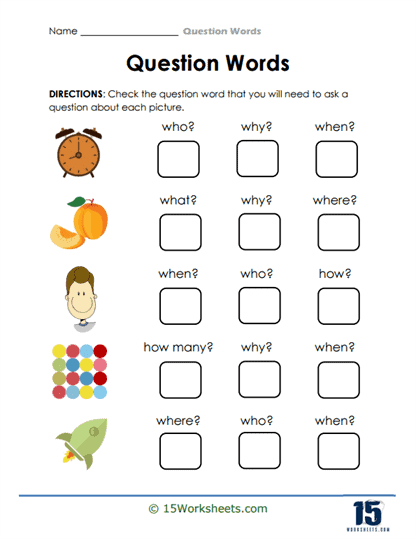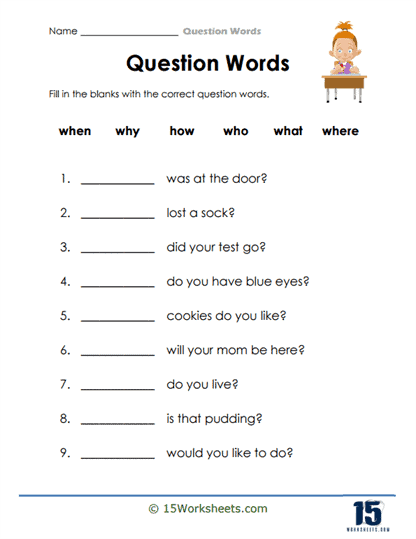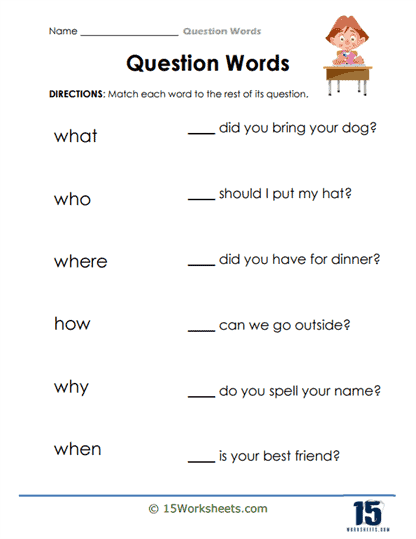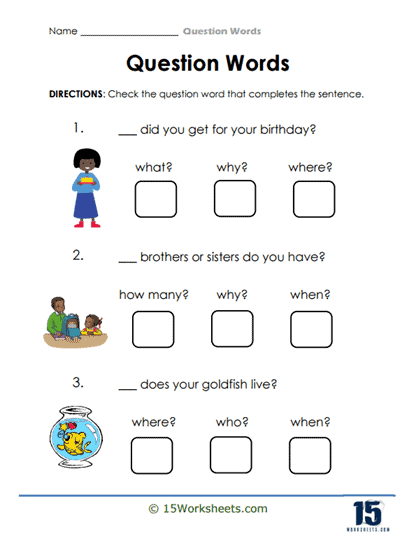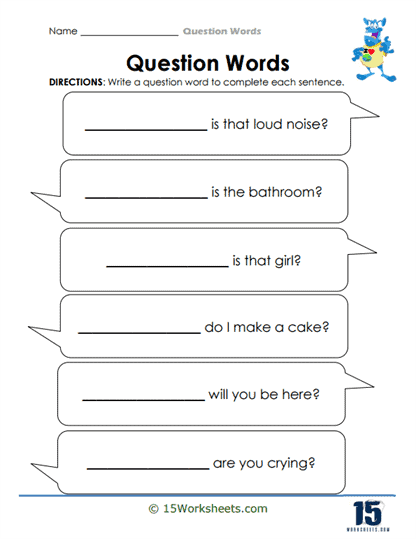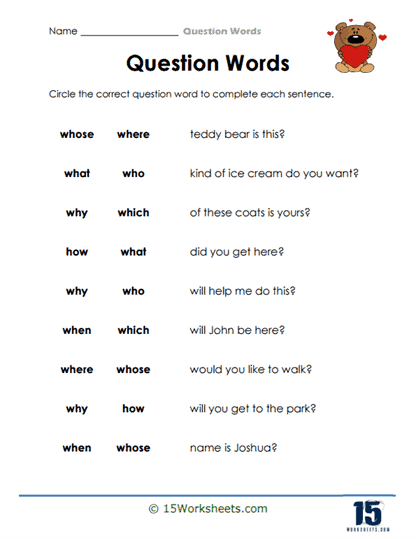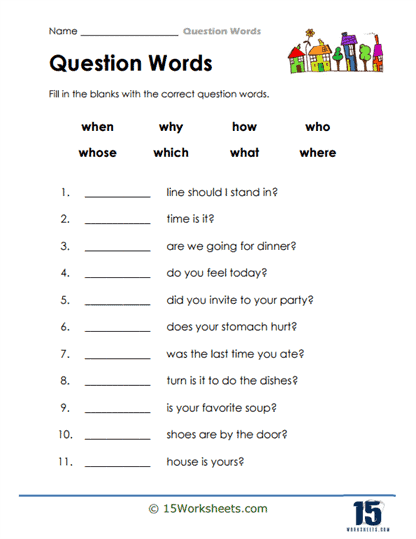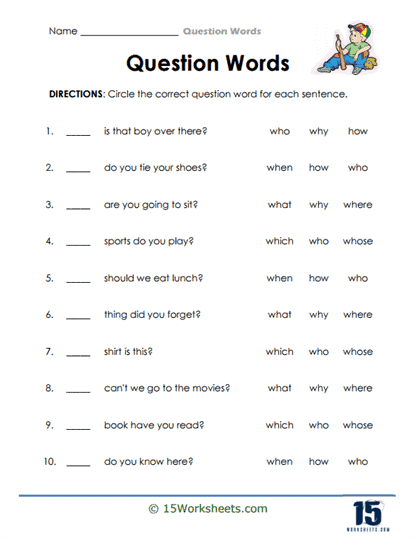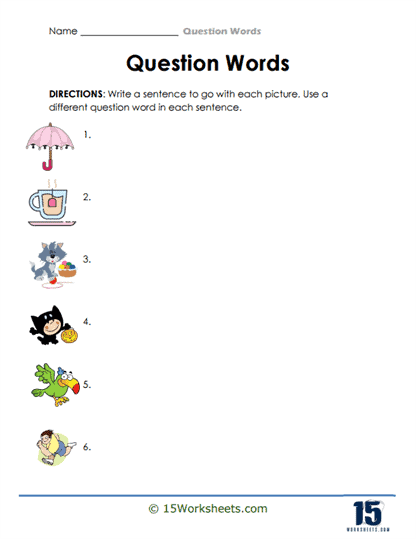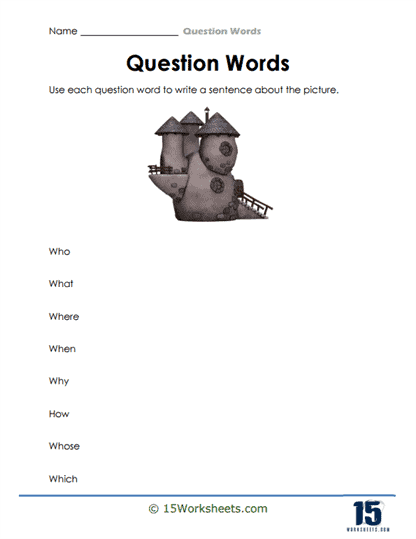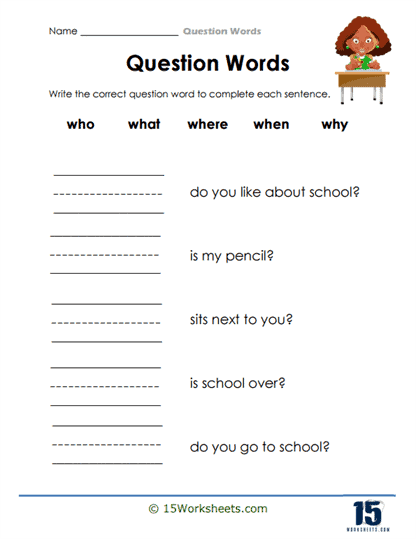Question Words Worksheets
All About These 15 Worksheets
First, let’s imagine you’re a detective. What do detectives do? They solve mysteries, right? And how do they do that? They ask a lot of questions. Questions help us understand things that we don’t know yet, just like a detective trying to solve a case. Question Word Worksheets are like our detective notebooks. They help us get better at asking questions, understanding things, and solving our own little mysteries!
So, you may ask, “What exactly are these Question Word Worksheets?” Well, these are special sheets filled with exercises that help us practice using question words. You already know these words, and you use them every day. They are words like ‘Who’, ‘What’, ‘Where’, ‘When’, ‘Why’, and ‘How’. These words are super important because they help us start questions. For example, “Who is your best friend?” or “Where is the library?”
Benefits Of Question Words Worksheets
Now, why are these worksheets helpful? Let’s think about our detective again. If a detective doesn’t know how to ask the right questions, it would be pretty hard for them to solve a mystery, right? It’s the same with learning. The better we get at asking questions, the better we can understand things we don’t know yet. For instance, if you’re reading a story about a boy who found a magic wand, you might wonder, “Who gave him the wand?”, “Where did he find it?”, “Why is the wand magical?”, and “How does the wand work?” By asking these questions, you understand the story better. And that’s why these worksheets are so useful – they help you practice asking great questions.
But, what kind of exercises can we find on these worksheets? Don’t worry, they are all fun, and each of them helps you practice using a different question word. Let’s talk about some of them:
Fill in the Blank – In these exercises, you might see a sentence with a missing question word. You need to fill in the blank with the right one. For example, “_____ is your favorite color?” You know that the answer could be “My favorite color is blue.” So, the correct word to fill in the blank is ‘What’.
Matching – In these activities, you might have to match a question with its answer. On one side, you’ll have questions like “Who is your teacher?” and on the other side, you’ll have answers like “Mrs. Johnson.” Your job is to connect them correctly.
Question Formation – These exercises ask you to create your own questions. For example, you might be given a word like ‘elephant’ and then you have to come up with a question about it, such as “Where do elephants live?”
Picture-Based Questions – Sometimes, you might see a picture, and you need to write questions about it using the question words. If the picture is about a park, you could ask, “What are the children playing?” or “Where is the park located?”
Story-Based Questions – You might read a short story, and then you need to write down some questions about the story. This helps you understand the story better and makes sure you didn’t miss any important details.
As you can see, all these exercises will help you practice using question words in different ways. And remember, the more you practice, the better you’ll get at asking questions, understanding new things, and even becoming a word detective! So next time you see a Question Word Worksheet, just imagine yourself putting on a detective hat and ready to solve some mysteries. It makes learning not just useful but also fun!




